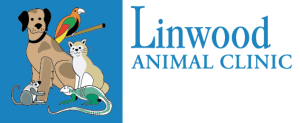Pet food has changed a lot over the last several decades, and you have more options for pet food than ever before. If you aren’t sure what type of diet you should be feeding your pet, consult with your veterinarian. Not all pet food diets contain the right balance of ingredients to maintain your pet’s health, so you shouldn’t switch foods without consulting with your veterinarian. Here’s a look at the dangers of some of the most common pet diet fads out there right now:
Raw Food Diet
Raw food diets aren’t regulated by any agency, so buying frozen or freeze-dried raw food for your pet means that you’re taking a big risk that there aren’t any contaminants or dangers hiding in the food. One of the biggest dangers with a raw food diet is foodborne illnesses from bacteria and viruses in the food. These include Salmonella, E. Coli, Listeria, and L. monocytogenes, all of which can infect you as well as your pet. Other than food poisoning, dangers of a raw food diet include:
● Lack of essential daily vitamins, minerals, and nutrients
- Tooth or gum injury from hidden bones in food
- Nutritional deficiencies
- Weight loss, coat or hair loss, and tooth loss
Vegan or Vegetarian Diet
While it might be the latest pet food fad, feeding your pet a vegan or vegetarian diet may not meet his specific dietary and nutritional needs. It can be tricky to switch your pet to a diet that hasn’t had the advantages of years of analysis and testing to ensure it provides sufficient nutrition to meet a pet’s needs throughout every lifestyle stage and health concern. While you may read on the internet that a vegan or vegetarian diet will help your pet’s allergies or digestive issues, you should always consult with your veterinarian before making that switch. The main dangers of a vegan or vegetarian diet are:
- Taurine and vitamin D deficiencies
- Inadequate daily protein intake
- Imbalance of amino acids and essential fatty acids
- Deficiency of other essential daily vitamins, minerals, and nutrients
Homemade Pet Food Diet
Feeding your pet homemade dog food might seem healthier, but it carries a great risk of error, miscalculations, and not meeting your pet’s needs, especially if he is aging or has health problems. Your homemade dog food will have to contain the right amounts of all of the vitamins, minerals, fat, protein, calories, supplements, and more that your pet needs each day. You’ll have to be sure you’re preparing and storing the food correctly, so your pet doesn’t get sick. And homemade pet food can’t provide the same protection as prescription pet food if your dog is at risk for or has been diagnosed with a health condition.
If you’re concerned that your pet’s diet is causing or contributing to allergies or digestive issues, or you’re thinking about switching your pet to an alternative diet, make an appointment with your veterinarian.
